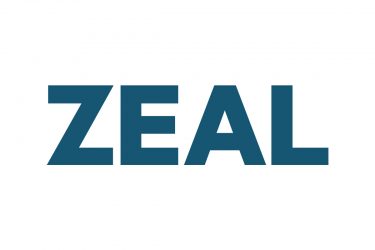 Online lottery brokerage Zeal Network has warned that full-year revenue and earnings are likely to fall significantly from the prior year, following its acquisition of Lotto24 and the pivot of its Tipp24 business from lottery betting to brokerage.
Online lottery brokerage Zeal Network has warned that full-year revenue and earnings are likely to fall significantly from the prior year, following its acquisition of Lotto24 and the pivot of its Tipp24 business from lottery betting to brokerage.It said the change of Tipp24’s business model was likely to have an impact on its customer base, and coupled with a €26.3m (£22.5m/$29.0m) jackpot win in August, revenue was expected to be “significantly lower” than 2018’s €160m total. Earnings before interest, tax, depreciation and amortisation are also expected to fall, it added, coming in between €18m and €21m, compared to €48m in the prior year.
However, it added, due to the shift away from the lottery betting (or secondary lottery) business model, such revenue fluctuations related to jackpot payouts were not expected to hit results in future.
 For the three months to 30 September, revenue amounted to €15.7m, down 58.9% year-on-year, and despite other income rising to €6.2m, total operating performance was down 44.1% at €21.9m.
For the three months to 30 September, revenue amounted to €15.7m, down 58.9% year-on-year, and despite other income rising to €6.2m, total operating performance was down 44.1% at €21.9m.With the group reducing total headcount to 203 employees, personnel costs for the quarter fell to €6.0m, though increased marketing and sales-related expenses saw operating costs increase marginally to €19.1m. After a €289,000 benefit from currency exchange differences, the business incurred a loss on earnings before interest, tax, depreciation and amortisation of €3.0m.
After depreciation and write-downs, Zeal posted an operating loss of €8.5m, though an income tax benefit of €5.1m reduced the net loss for Q3 to €3.5m.
“We kept what we promised,” Zeal finance chief Jonas Mattson said. “We defined the new organisational structure, reduced the number of employees as planned, implemented the business model change, stopped the secondary lottery business and relocated the company headquarters back to Germany. The implementation of cost synergies is also proceeding according to plan.”
Zeal aims to achieve annual cost synergies of at least €57m, of which 80% are to be realised in the first year post-acquisition, and fully by the second. The personnel reduction, which accounts for around 40% of the savings, are almost fully implemented, and is expected to have a positive impact going forward.
Despite the short-term pain of the pivot away from lottery betting, Zeal highlighted the growth potential of brokerage. It highlighted that it acquired 568,000 new registered customers over the first nine months of the year, compared to 418,000 in 2018.
Thanks to the acquisition of Lotto24 in May 2019, monthly active users soared from 395,000 to 952,000, with average billings per user rising slightly to €56.91.
For the nine months to 30 September, billings – comprising all stakes from customers, including brokerage stakes and associated VAT, net of bets – amounted to €332.6m, a 56.6% year-on-year increase.
Revenue for the period, however, fell 16.2% to €93.2m, with other operating income of €8.0m taking total operating performance to €101.2m, down 11.4% from the first nine months of 2018.
After personnel expenses of €17.2m and other costs (including marketing and sales expenses) of €56.0m, EBITDA was down marginally at €28.3m. Depreciation and write-downs saw operating profit decline to €12.9m, and after finance related costs and taxes, net profit for the year to 30 September fell 46.2% to €10.8m.
“We are confident and look forward to continuing our recent success story with our future focus on the sustainable, continuously growing and socially valuable German lottery brokerage business,” Mattson added.












